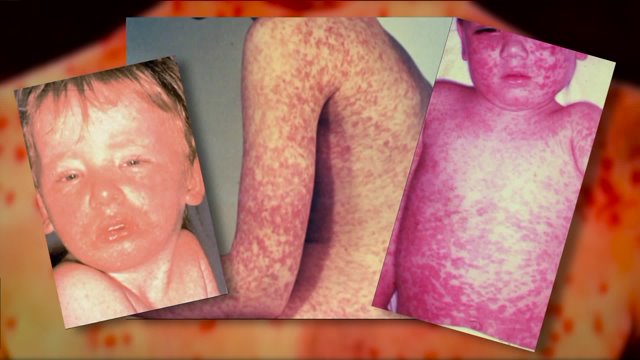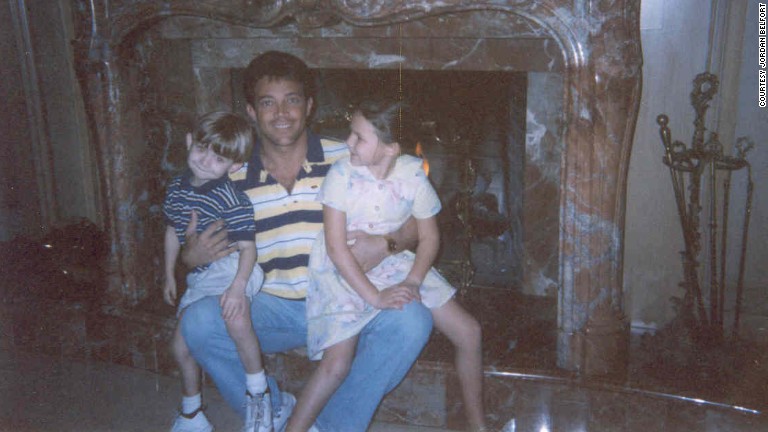Kansas Reports Six Additional Measles Cases: Health Officials Urge Vaccination

Table of Contents
The Current Measles Outbreak in Kansas
The recent surge in measles cases in Kansas began in September 2023. While the exact origin remains under investigation, the affected individuals are spread across several counties, including Sedgwick, Johnson, and Shawnee counties. The age range of those affected is diverse, with cases reported in both children and adults, highlighting the vulnerability of various populations. Currently, health officials are investigating whether the cases are linked through a common source, such as travel or contact with an infected individual.
- Number of confirmed cases to date: 22 (as of October 26, 2023) – This number is subject to change as investigations continue.
- Specific counties or regions impacted: Sedgwick, Johnson, Shawnee, and potentially others. Health officials are actively monitoring the situation and updating the public as more information becomes available.
- Age demographics of those affected: A range of ages, from children to adults.
- Information about any potential source of the outbreak: Investigations are ongoing to determine the source of the outbreak. Possible sources include international travel and unvaccinated individuals within the community.
Understanding the Risks of Measles
Measles is a highly contagious viral illness spread through the air through coughing and sneezing. It's incredibly easy to contract, even from brief exposure to an infected person. The virus is so contagious that up to 90% of susceptible individuals who come into contact with an infected person will develop the disease.
The symptoms of measles typically appear 7-14 days after exposure and can include:
- Highly contagious airborne virus: Spread through respiratory droplets.
- Symptoms: High fever, cough, runny nose, conjunctivitis (pinkeye), and a characteristic red, blotchy rash that begins on the face and spreads to the body. Koplik's spots (small white spots inside the mouth) are also a hallmark sign.
- Serious complications: Pneumonia, encephalitis (brain swelling), and even death are potential complications, particularly in young children, pregnant women, and individuals with weakened immune systems.
The Importance of Measles Vaccination
The MMR (measles, mumps, and rubella) vaccine is a highly effective way to prevent measles. This safe and effective vaccine is typically administered in two doses, providing strong protection against this dangerous disease. The vaccine is crucial in minimizing the spread of measles and protecting vulnerable populations who cannot be vaccinated.
- MMR vaccine efficacy rates: The MMR vaccine is highly effective, with two doses providing greater than 97% protection against measles.
- Safety profile of the MMR vaccine: Extensive research has shown the MMR vaccine to be safe and effective. Claims linking the vaccine to autism have been debunked by numerous scientific studies.
- Addressing common vaccine hesitancy concerns: Concerns about vaccine safety are understandable, but it's crucial to rely on credible scientific evidence from reputable sources such as the CDC and WHO.
- Benefits of herd immunity in preventing outbreaks: When a significant portion of the population is vaccinated, it creates "herd immunity," protecting even those who cannot be vaccinated, such as infants or individuals with compromised immune systems.
Where to Get Vaccinated
It is crucial to get vaccinated to protect yourself and your community from the measles outbreak in Kansas. The MMR vaccine is widely available and readily accessible through various healthcare providers.
- Local Health Departments: Contact your local health department for information on vaccination clinics and programs.
- Doctors' Offices and Clinics: Many primary care physicians and clinics offer the MMR vaccine. Schedule an appointment with your doctor to discuss vaccination.
Conclusion
The recent surge in measles cases in Kansas serves as a stark reminder of the importance of measles vaccination. The highly contagious nature of measles and its potential for severe complications make vaccination a critical step in protecting both individuals and the community. By understanding the risks and benefits, and by actively seeking out vaccination, we can collectively curb the spread of this preventable disease. Protect yourself and your loved ones; get vaccinated against measles today. Contact your healthcare provider or local health department to learn more about the MMR vaccine and scheduling your vaccination. Don't let a measles outbreak in Kansas affect you. Get vaccinated against measles now!

Featured Posts
-
 Hhs Reverses Course On Transgender Care Providers React To New Protocols
May 30, 2025
Hhs Reverses Course On Transgender Care Providers React To New Protocols
May 30, 2025 -
 Antsar Tarykhy Dyl Twrw Yktb Asmh Fy Sjlat Jyrw Iytalya
May 30, 2025
Antsar Tarykhy Dyl Twrw Yktb Asmh Fy Sjlat Jyrw Iytalya
May 30, 2025 -
 La Sncf Face A La Greve Les Annonces Du Ministre
May 30, 2025
La Sncf Face A La Greve Les Annonces Du Ministre
May 30, 2025 -
 Alcaraz Wins First Monte Carlo Masters Title After Challenging Week
May 30, 2025
Alcaraz Wins First Monte Carlo Masters Title After Challenging Week
May 30, 2025 -
 Droits De Douane Mode D Emploi Et Guide Complet
May 30, 2025
Droits De Douane Mode D Emploi Et Guide Complet
May 30, 2025
Latest Posts
-
 Donald Trump And His Friend Separating Fact From Fiction In The Viral Story
May 31, 2025
Donald Trump And His Friend Separating Fact From Fiction In The Viral Story
May 31, 2025 -
 Rolan Garos 2024 Kontuziyata Na Grigor Dimitrov Analiz I Prognozi
May 31, 2025
Rolan Garos 2024 Kontuziyata Na Grigor Dimitrov Analiz I Prognozi
May 31, 2025 -
 15 Godini Rolan Garos Za Grigor Dimitrov
May 31, 2025
15 Godini Rolan Garos Za Grigor Dimitrov
May 31, 2025 -
 Elon Musk Dogecoin And The Trump Administration A Retrospective Analysis
May 31, 2025
Elon Musk Dogecoin And The Trump Administration A Retrospective Analysis
May 31, 2025 -
 Rolan Garos 2024 Grigor Dimitrov Se Zavrscha
May 31, 2025
Rolan Garos 2024 Grigor Dimitrov Se Zavrscha
May 31, 2025
